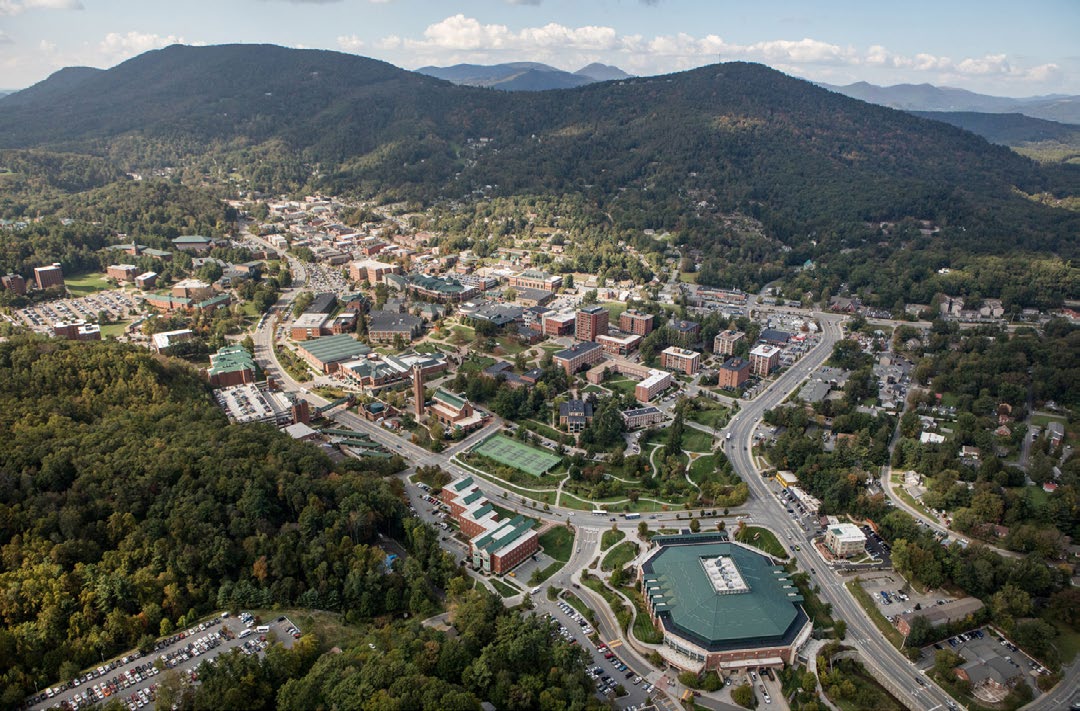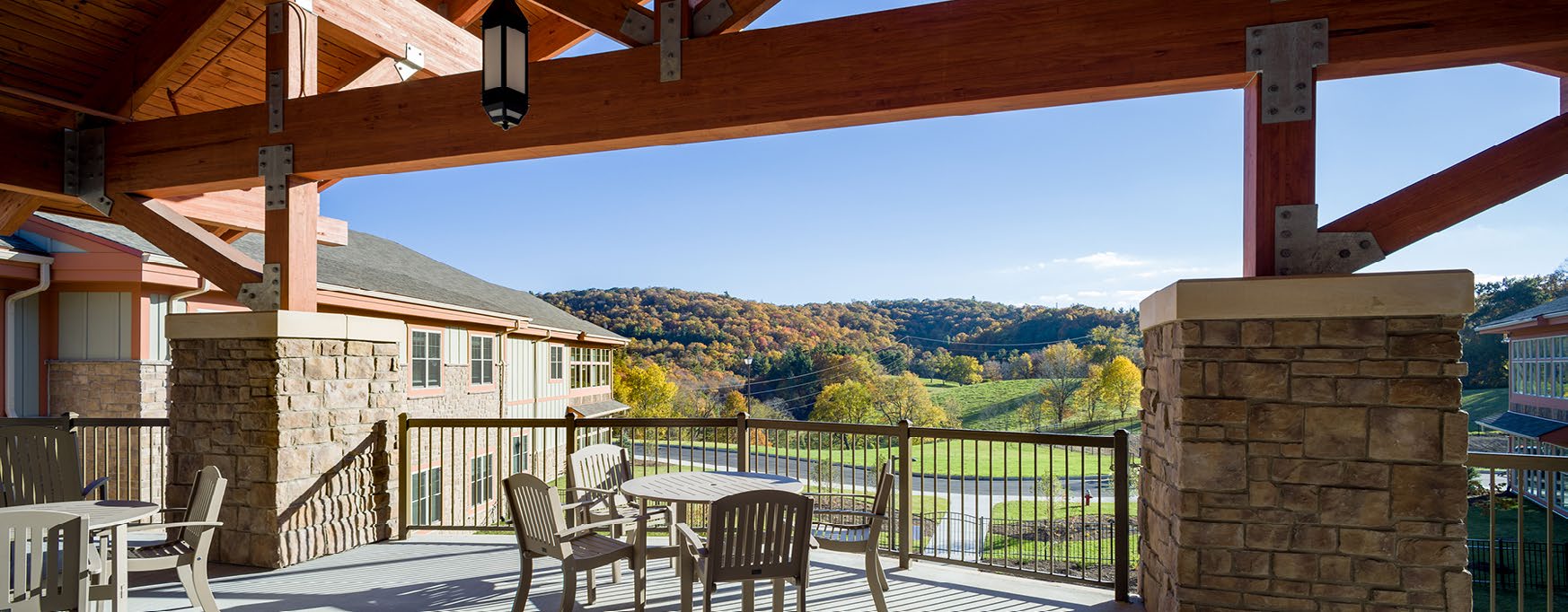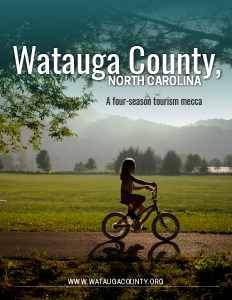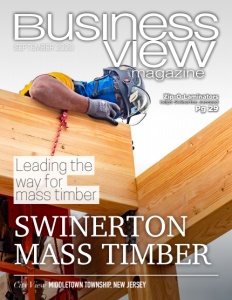Watauga County, North Carolina
A four-season tourism mecca
Business View Magazine interviews representatives from Watauga County, NC, as part of our focus on best practices of American towns, cities, and counties.
Watauga County is located in the northwestern part of the State of North Carolina, on the border with Tennessee. It was named for the Watauga River, a Native American word which can mean either beautiful water, whispering waters, river of many springs, or river of islands. Watauga County is extremely mountainous and all of its terrain is located within the Appalachian Mountain range, which is why it is often referred to as the High Country. Its highest peak is Grandfather Mountain, which rises to 5,964 feet. Its largest city and county seat, Boone, has the highest elevation of any city over 10,000 population in the Eastern United States.
Once upon a time, the mainstay of the County’s economy was agriculture. Cabbage was once widely grown, so much so, that a sauerkraut plant was once located in Boone. Today, however, Watauga County’s main economic drivers are tourism and Appalachian State University, with its roughly 20,000 students making up the bulk of the County’s population of 55,000. “We don’t have any big infrastructure projects, nor do we have a business park that we’re breaking ground on or anything like that,” admits Director of Economic Development, Joe Furman. “We’re selling ourselves, basically – the beautiful scenery, the wonderful temperature in summer, the fall colors, snow skiing in the winter – four seasons of outdoor recreation opportunities with a major state university in the middle. We’re just a delightful place to live and do business.”
Indeed, Watauga County is a paradise for a multitude of outdoor sports and activities. Cyclists and hikers can enjoy hundreds of miles of open roads and mountain trails; three of North Carolina’s seven ski resorts are located in the immediate vicinity of Boone; area streams and lakes provide habitat for trout, bass, catfish, blue gill, and other native varieties of fish for the sport fisherman; for the hunter, the Blue Ridge Mountains are home to an abundance of large and small game; and for canoeists and kayakers, the County is the origin of four separate rivers, each of which flows in a different direction. The New River, which flows north, is one of the oldest rivers in the world and has been designated an American Heritage River.
That being said, Furman notes that the County is beginning to expand a couple of sectors, most especially high tech. “We do have a major employer,” he notes. “ECR Software Corporation grew up here in Boone. They develop and market, worldwide, the self check-out systems in retail outlets. We also have a thriving coder community that meets at an event called ‘Silicon Holler,’ which is sponsored by an ad hoc group called Startup High Country. So, because of the presence of the University, we’re beginning to have a thriving, below-the-radar community of computer operators, software developers, coders, and the like.”
In order to support that nascent community, Furman reports that the Economic Development Commission is partnering with a private company to develop Boone’s first high tech coworking space, called Boone Underground, which is slated to open in September. “We’ve wanted to develop one of these for entrepreneurs for a long time, but we, as a county organization, didn’t feel like we should take the lead in this, but rather a supporting role. So, we’re really looking forward to that and we’re investing in it. Of course, there’s also private space available in the facility, as well, and it’s not going to be only for those who are involved in software or coding, although those will probably be the majority of the users, but open to any entrepreneur. Hopefully, that’s going to open here soon and be successful.”
Another sector that Furman says the County is looking to expand is a corollary to what he terms its “outdoor economy.” “When I say outdoor economy,” he explains, “I’m not only including national parks, local parks, and so forth, and attractions, such as Tweetsie Railroad (Tweetsie Railroad is a family-oriented heritage railroad and Wild West amusement park located between Boone and Blowing Rock. The centerpiece of the park is a three-mile ride on a train pulled by one of Tweetsie Railroad’s two historic, narrow-gauge steam locomotives) or Mystery Hill (which features three museums with historic artifacts and exhibits) or the ski slopes, but also outdoor apparel and equipment manufacturers.”
“We’ve got a couple of pretty well-known ones” he continues. “Misty Mountain Threadworks manufactures climbing gear, although they have shifted, during the pandemic, to manufacturing face coverings. They also have a contract with the military for some of their gear. Then there’s Tsuga that makes other types of outdoor equipment. And we’ve got a couple of knife manufacturers – Winkler Knives is well-known.”
David Jackson, President & CEO of the Boone Area Chamber of Commerce, adds that the County has been trying to get the word out to other similar manufacturers of outdoor equipment, that the area is a perfect product testing ground for the type of gear that is being made in what he calls a “four-season tourism mecca.” “You can come in and produce your product in a place where you can immediately test your product by people that are imbedded in the culture that you are trying to hit from a consumer standpoint,” he maintains. “That has been very successful within the region here and something that we can dial in on even more, going forward.”
In order to incentivize such new businesses that want to locate in the High Country, Watauga County works with the State of North Carolina, which offers a range of incentives and grant programs. “Our part in that is coordinating with the state,” says Furman. “We’ll do that on behalf of partners in the private sector. The County, in the past, has provided a healthy range of incentives and is willing to negotiate those with potential partners. We don’t have a formal incentive package in that sense, but we’re certainly willing to discuss those. We look at it the same way the state does – we want to see an investment in the community and we want to see jobs created and maintained.”
An investment the County has made in a local organization – and one that has grown exponentially due to the COVID-19 pandemic – is the High Country Food Hub. “It’s an online marketplace for local meat and vegetables produced by local farmers,” says Furman. “The Economic Development Commission believes that’s very important and invested in that twice. After the first investment, the Food Hub doubled its business in a year. And I think it’s about five times bigger now, because of people preferring to shop that way instead of going to a store. Once the pandemic is over, I’m sure they’ll lose some of that business, but I’m sure they’ll keep a good portion of it, too. So, within the last year-and-a-half, the Food Hub has become a very important and viable contributor to the economy.”
“It’s a non-profit, run by a group called Blue Ridge Women in Agriculture,” Jackson explains. “They saw a way to centralize product distribution and a way to expand freezer space and storage space for local farmers so that they could move some of that product and have a centralized location to operate out of and get those products to customers, rather than having them drive all over the county looking for these farms and trying to source all that stuff themselves. There’s a central location right in the center of downtown Boone and that stuff goes out every Wednesday. You drive there, you get your stuff, and you’re out of there.”
“I know that in the first month of the pandemic, their business went up by 358 percent,” Jackson claims. “They went from making a couple thousand dollars a month, to making about $25,000 or more, a month, during high volume times. And one of the interesting things they did with that money was invest it in a program called Double Up Food Bucks, which allows them to use SNAP (Supplemental Nutrition Assistance Program, aka Food Stamps) dollars to go to a local farmers market and buy fresh fruits and vegetables from local producers that doubles the amount of money that they can spend. That used to be ten dollars for a ten dollar match. Now, they are able to get up to $40 dollars a week in matching benefits. The other piece of that is that a lot of our local farmers had severe supply chain disruptions, as everybody did, because of the pandemic. A lot of those producers, who counted on getting their product into restaurants, especially the higher-end restaurants in the resort communities here and around us, didn’t have that ability for awhile. So, the Food Hub became an unbelievably well-timed resource for them to be able to get those goods out in a timely enough fashion to still be able to make something out of it.”
Jackson reports that another sector of the local economy that is booming, with plans to grow even more, is healthcare. The Appalachian Regional Healthcare System (ARHS), the leader for healthcare in the High Country, is comprised of two hospitals, thirteen medical practices, the Seby B. Jones Regional Cancer Center, The Rehabilitation Center, The Breast Center, and the Paul H. Broyhill Wellness Center. “Our healthcare system is one of the rarities here in rural North Carolina, especially because it’s not owned by a mega-corporation,” he notes. “They have a multi-county reach, and they actually just embarked upon an expansion of services and physical infrastructure, too.”
This past July, the Watauga Medical Center (WMC) in Boone began performing cardiac catherizations, 24/7. With this new round-the-clock coverage, cardiologists, interventional cardiologists, emergency department providers, and emergency first responders can partner to diagnose problems with blood flow, blood pressure, and valve function, which can save lives and reduce the chances of long-term damage. On average, more than 450 diagnostic cardiac catheterizations are done annually at WMC. And in August, ARHS opened a new Heart & Vascular Center at the WMC. The new 8,000-sq.-ft. facility has twelve exam rooms, three device rooms, and two heart failure treatment rooms. The new name represents the enhanced service offerings and multi-disciplined team of board-certified cardiologists, advanced practice providers, cardiac nurses, office staff, and device technicians that all partner with patients to manage symptoms, monitor medications, and create customized treatment plans.
 In addition, ARHS has initiated a new program to have four medical residents working in primary care in the County’s rural communities. “That’s primary physicians for folks that normally don’t like going to the doctor,” says Jackson. “They’re all specifically trained in that area. We’ve got four, this year, and we’ll have four each of the next two years, so eventually we’ll have, over the next three years, 12 medical residents working within the local healthcare system to expand the types of service that we can provide in a rural setting. So, we have seen some growth in that regard. I hope the pandemic doesn’t dent that, at all, because they’ve got some pretty ambitious plans to sink about $90 million in physical infrastructure improvement to go along with some of that expanding care. And we see that, in some cases, especially in the orthopedic side of things, you’re looking at a lot of people that come from Florida and other locations to get procedures done because of the quality of care, and the fact that they’re able to get rehabilitation done in the same facility, in most cases. But it’s also a pretty nice place to rehab and we’ve got the facility and the mindset around elevating that more.”
In addition, ARHS has initiated a new program to have four medical residents working in primary care in the County’s rural communities. “That’s primary physicians for folks that normally don’t like going to the doctor,” says Jackson. “They’re all specifically trained in that area. We’ve got four, this year, and we’ll have four each of the next two years, so eventually we’ll have, over the next three years, 12 medical residents working within the local healthcare system to expand the types of service that we can provide in a rural setting. So, we have seen some growth in that regard. I hope the pandemic doesn’t dent that, at all, because they’ve got some pretty ambitious plans to sink about $90 million in physical infrastructure improvement to go along with some of that expanding care. And we see that, in some cases, especially in the orthopedic side of things, you’re looking at a lot of people that come from Florida and other locations to get procedures done because of the quality of care, and the fact that they’re able to get rehabilitation done in the same facility, in most cases. But it’s also a pretty nice place to rehab and we’ve got the facility and the mindset around elevating that more.”
Some other recent projects in the County include a multi-hundred-million-dollar investment by Appalachian State University to update some of its dormitory facilities, and the brand new 100,000-sq.-ft. Watauga County Recreation Center that features a wide variety of rec spaces, including a six-lane competition pool and leisure pool, four full-size gymnasiums, a multipurpose studio, an events classroom, a fitness center with weight and exercise rooms, two birthday party rooms, and an elevated jogging track. “Unfortunately it can’t open yet,” says Furman, “but once it does, it will be quite an addition. The County also invested, as has Boone, in greenways and the County has invested in paddle access projects for both the Watauga and New Rivers.
Regarding building and growth in the County, Furman says that even during the pandemic, development has continued to increase: “That leads me to believe, along with what I’ve heard from the real estate community, that people are continuing to try and move here as a direct result of the coronavirus in order to get out of cities. They’ve found that they can work remotely a lot more than maybe they knew. It’s a perfect destination for many folks, and a great place to live and do business.”
 Jackson agrees. “This not the same place it was 20 or 30 years ago,” he states. “It’s grown up a lot, and in a very positive way. There have been a number of infrastructure investments here – better roads leading in, waterlines being developed to better service the next generation of needs within the town of Boone and immediately surrounding it. There are people that live in places like the suburban Atlanta area and have a 90-minute drive into work every day and here, in 90 minutes, you can be in Charlotte, you can be in the Greensboro-Piedmont Triad area, you can be in Raleigh in less than three hours. You get the amenities of living in a place that’s got the outdoor adventure opportunities that everybody seeks right now, but you’ve also got proximity to international airports, highway systems – all of the things that you need to do business with.”
Jackson agrees. “This not the same place it was 20 or 30 years ago,” he states. “It’s grown up a lot, and in a very positive way. There have been a number of infrastructure investments here – better roads leading in, waterlines being developed to better service the next generation of needs within the town of Boone and immediately surrounding it. There are people that live in places like the suburban Atlanta area and have a 90-minute drive into work every day and here, in 90 minutes, you can be in Charlotte, you can be in the Greensboro-Piedmont Triad area, you can be in Raleigh in less than three hours. You get the amenities of living in a place that’s got the outdoor adventure opportunities that everybody seeks right now, but you’ve also got proximity to international airports, highway systems – all of the things that you need to do business with.”
“And the pandemic, hopefully, will push our state to develop more broadband as a utility and we can only get better at broadband deployment,” he says in conclusion. “And that’s going to make it even easier to relocate from anywhere in the world and come here to Watauga County and know that you’ve got safety, a top-rated public school system, intellectual capital with a major university right down the street, and you’ve got a view that you will love to look at 365 days a year.”
AT A GLANCE
WHO: Watauga County, North Carolina
WHAT: A county of 55,000
WHERE: In the northwestern part of North Carolina, on the border with Tennessee
WEBSITE: www.wataugacounty.org
PREFERRED VENDORS
Blue Ridge Energy – www.BlueRidgeEnergy.com
Blue Ridge Energy serves 76,000 members in NW North Carolina with affordable, reliable and progressively low carbon electricity. Its Propane and Fuels subsidiary includes showrooms in five counties, while RidgeLink provides fiber optic infrastructure to cellular broadband, education, health care and other sectors.




